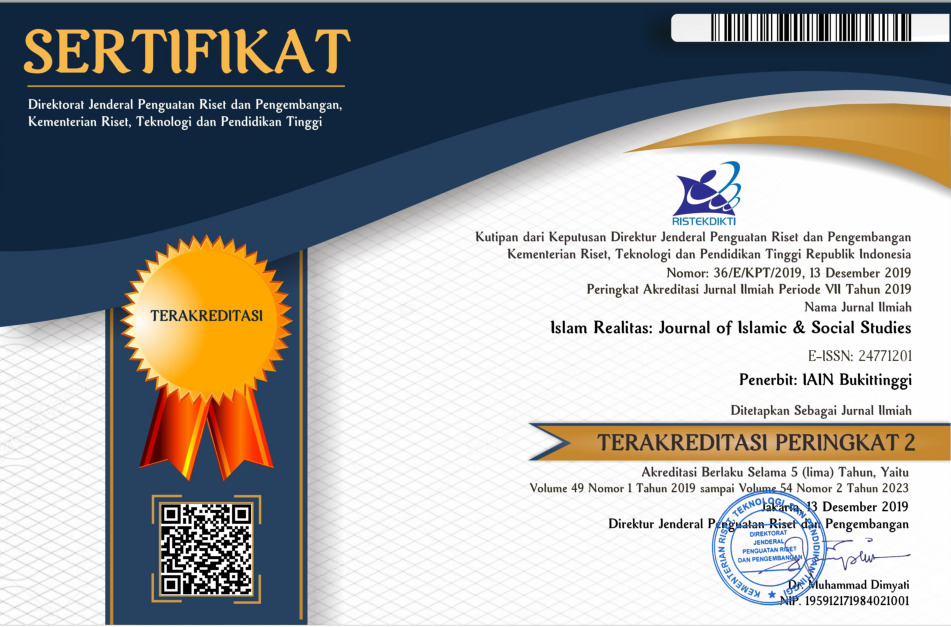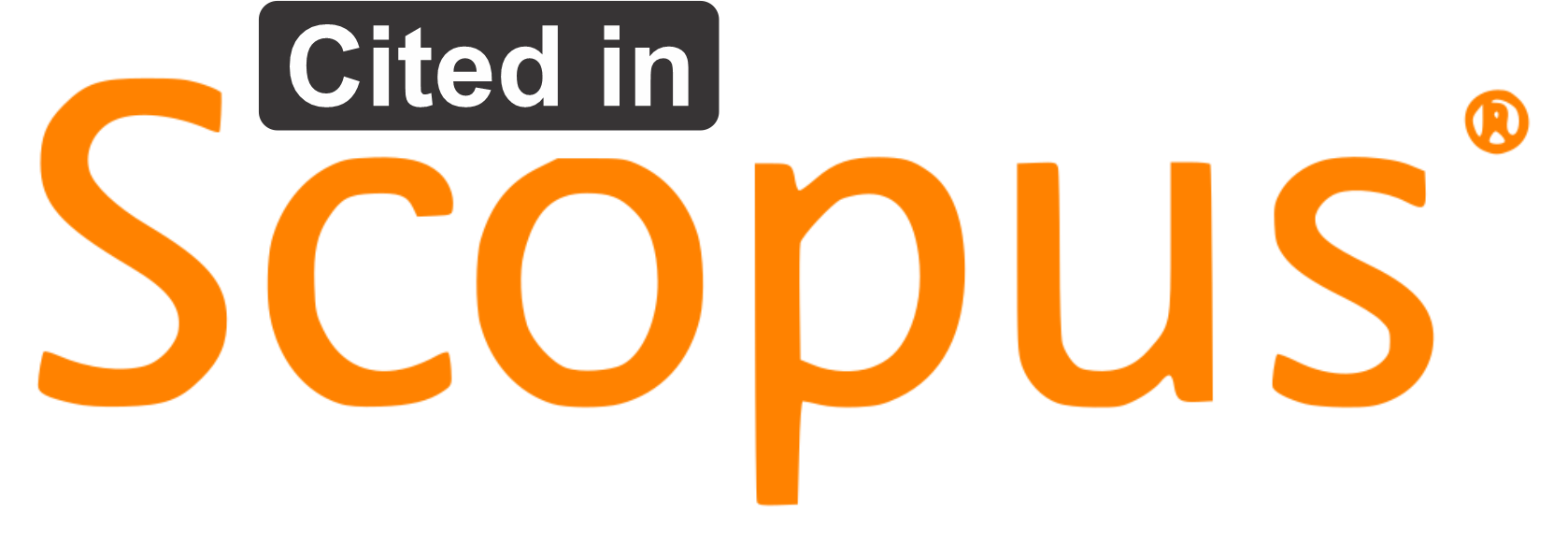EPISTEMOLOGI PEMIKIRAN ISLAM ‘ABED AL-JABIRI DAN IMPLIKASINYA BAGI PEMIKIRAN KEISLAMAN
Downloads
Buku Teks
Al-Jabiri, Muhammad Abed, Post Tradisonalisme Islam, penj. Ahmad Baso (Yogyakarta: LKIS, 2000).
______, Kritik Pemikiran Islam; Wacana Baru Filsafat Islam, pen. Burhan (Yogyakarta: Fajar Pustaka Baru, 2003)
Ratna, Nyoman Kutha, Teori, Metode, dan Teknik Penelitian Sastra (Yogyakarta: Pustaka Pelajar, 2013).
Soleh, Khudri, A., Wacana Baru Filsafat Islam (Yogyakarta: Pustaka Pelajar, 2012).
_____, Filsafat Islam; dari Klasik Hingga Kontemporer (Yogyakarta: Ar-Ruzz Media, 2013).
Zaprulkhan, Filsafat Islam; Kajian Tematik (Jakarta: PT. Raja GrafindoPersada, 2014)
Jurnal
Faisol, M. “Struktur Nalar Arab-Islam Menurut Abid Al-Jabiriâ€, Jurnal Tsaqafah, Vol. 6, No. 2, 2010.
Khairina, Arini Izzati. “Kritik Epistemologi Nalar Arab Muhammad Abed Al-Jabiriâ€, El-Wasathiya: Jurnal Studi Agama, Vol. 4, No. 1, 2016.
Rozi, Syafwan, "Agama dan Postmodernisme: Menelusuri Metodologi dan Pendekatan Studi-Studi Agama", Ilmu Ushuluddin, 1.3, 2012
Sebti, Meryem. “The Decline of Thought in the Arab World According to Muhammad ‘Abed al-Jabiriâ€, Diagones, Vol. 27, No. 2, 2010.
Sonn, Tamara. “Mohammed Abed Al-Jabiri, Arab–Islamic Philosophy: A Contemporary Critiqueâ€, International Journal of Middle East Studies, Vol. 34, No. 2, 2002.
Wirianto, Dicky. “Wacana Rekonstruksi Turats (Tradisi) Arab Menurut Muhammad Abed al-Jabiri dan Hasan Hanafiâ€, Islam Futura, Vol. XI, No. 1, 2011.
Authors who publish with this journal agree to the following terms:
- Authors retain copyright and grant the journal right of first publication with the work simultaneously licensed under a Creative Commons Attribution License that allows others to share the work with an acknowledgment of the work's authorship and initial publication in this journal.
- Authors are able to enter into separate, additional contractual arrangements for the non-exclusive distribution of the journal's published version of the work (e.g., post it to an institutional repository or publish it in a book), with an acknowledgment of its initial publication in this journal.
- Authors are permitted and encouraged to post their work online (e.g., in institutional repositories or on their website) prior to and during the submission process, as it can lead to productive exchanges, as well as earlier and greater citation of published work (See The Effect of Open Access).









